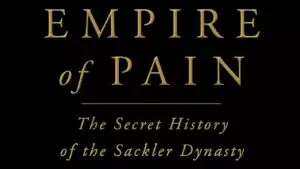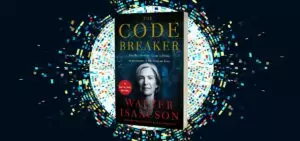By Patrick West

✅ AI Essay Writer ✅ AI Detector ✅ Plagchecker ✅ Paraphraser
✅ Summarizer ✅ Citation Generator
Anti-Americanism has not always been the preserve of the liberal-left in Britain. In the UK, for instance, a not-uncommon response among conservatives to 9/11 was: ‘Now they know what it feels like’. For decades, the British had lived with IRA terrorism, funded in part by misty-eyed Irish-Americans who from a distance seemed to romanticise armed struggle (by white people, at least). I was working on the letters page of a conservative newspaper in September 2001, and in the wake of the attacks on the Twin Towers, the correspondence that did not froth with anti-Islamic invective instead reflected that it ‘served Americans right’.
Aside from the Oklahoma City bombing of 1995 and the previous attack on the World Trade Center in 1993, the United States never properly had to deal with domestic terrorism. This might explain, as Dominic Streatfeild expounds, why it reacted to 9/11 so cack-handedly—and why it continues to do so. Principally, the USA did not understand the nature of terrorism. Soldiers use violence to achieve strategic goals; terrorists employ violence to inflict psychological damage and to provoke an over-reaction (after all, al-Qaeda’s ostensible goal is either incoherent or—the destruction of the West—non-negotiable). ‘Like a crafty Judo move, where the enemy’s strength is reversed and turned against it, al-Qaeda challenged the United States to respond, then sat back and watched’. Mistaking a terrorist attack for a military one, the US took the bait.
The author combines biography and reportage in eight chapters that interlink common themes, each a microcosm of the world after 9/11. There is the tale of a Texan, Mark Stroman, who following President Bush’s exhortation to ‘rid the world of evil’, took it upon himself, in his own words, to take care of these ‘sand niggers’. On October 4, 2001, Stroman shot dead the proprietor of a Dallas petrol station: Vasudev Patel, a Hindu, was one of the first post-9/11 victims, and a casualty of America’s new spirit of ‘othering’.
There is the infamous bombing of a wedding party in Afghanistan in June 2002, which killed 48 and wounded 117, mostly women and children. This calamity was the consequence of ‘the decision not to commit large numbers of troops [which] meant less accurate intelligence’, facilitated too by ignorance of the Afghan custom of letting off gunfire at weddings. The ‘war on terror’ had become a grim re-run of Vietnam: ‘coalition troops fought cowardly campaigns in Afghanistan and Iraq, preferring to drop bombs from the air rather than engaging the enemy on the ground, then lying about the number of women and children they killed’.
Incompetence and ignorance was combined with mendacity. American intelligence protested that Saddam Hussein had ordered aluminium tubes intended for obtaining uranium to build ‘weapons of mass destruction’. They were not. They were to be used for firing conventional rockets. After the invasion, once it was shown there were only weapons of prosaic destruction, ‘the administration decided it was best to assume they had never been there’. The compound where the conventional weapons were stored, in Yusifiyah, near Baghdad, was by-passed by the Americans, and then comprehensively looted by insurgents. One source in the book estimates that of the violence following the invasion, 90 percent was facilitated by this looting.
The US broke international law and breached human rights conventions, most notoriously in its ‘rendition’ procedure. It then befriended regimes with appalling human rights records, such as that in Uzbekistan, from where it could make airborne sorties to neighbouring Afghanistan. Such a move had eerie precedence: ‘Ignoring human rights abuses for the sake of political expediency was a mistake the United States had been making in the Middle East for decades. It had led to the rise of al-Qaeda in the first place’. As the author judiciously notes, the US did eventually terminate its relationship with Uzbekistan in 2005 on account of pressure from human rights bodies. However, the perfidy of US foreign policy, not least its use of extrajudicial execution and extraordinary rendition, has nonetheless ingrained mistrust—in 2003, Islamic states in northern Nigeria halted anti-polio programmes on the suspicion that an ‘Infidel vaccine’ was a covert US-led means of sterilisation.
In this, perception has become as important as actuality. In an internet age in which information and disinformation circulate instantaneously and interchangeably, and in which the US itself has been an agent of deceit, subjectivity is now king. Streatfeild observes that ‘war declared in the name of human rights, democracy and freedom subverted those very rights and ended up achieving the exact opposite of its stated goals’ and that ‘wherever the US flag went there was death… the politicians lied, and lied, and lied’. Much of A History of the World Since 9/11 is delivered in such taut staccato, and one could be forgiven for thinking this is a conventional anti-war polemic, yet he issues the important proviso: ‘It doesn’t matter whether you believe these statements or not. What does matter is that a huge percentage of people in the Arab world believe them’.
Therein may lie a ‘root cause’ in the so-called ‘clash of civilizations’: a pervasive dearth of objectivity and reason, and a surplus of subjectivity and conviction. Many opponents of the ‘war on terror’ affirm that there is a moral equivalence between al-Qaeda and neocons who proselytise about freedom and democracy. I wouldn’t be sure about that, but there may be a mental parallel. After September 11, policy-makers called for ‘moral clarity’, comparing 9/11 to Pearl Harbor and Bin Laden to Hitler, spewing Manichaean rhetoric about the battle between good and evil. ‘Were we lied to? I’m not certain we were’ concludes Streatfeild. ‘The issue was not one of dishonesty, but of something far more corrosive: certainty’.
This is why 9/11 also brought about a perverse nostalgia for the IRA in Britain. At least they gave warnings. We could negotiate with them because we understand what they wanted. At least these terrorists were open to dialogue and compromise. They could be reasonable.
————-
Written under a Creative Commons License, with edits: https://creativecommons.org/licenses/by/1.0/
Follow us on Reddit for more insights and updates.





Comments (0)
Welcome to A*Help comments!
We’re all about debate and discussion at A*Help.
We value the diverse opinions of users, so you may find points of view that you don’t agree with. And that’s cool. However, there are certain things we’re not OK with: attempts to manipulate our data in any way, for example, or the posting of discriminative, offensive, hateful, or disparaging material.